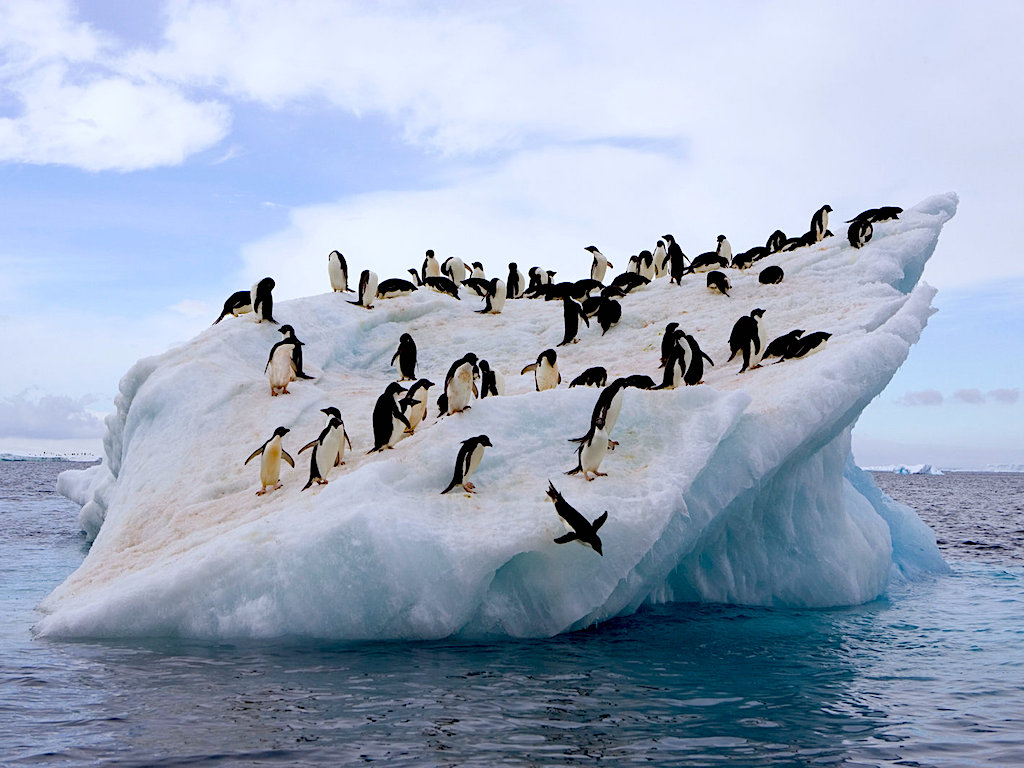3 Mins Read
Antarctica has just logged the hottest temperature on record with a reading of 18.3 degrees celsius, beating the previous record by 0.8 celsius in March 2015. The speed at which temperatures are climbing in the south frigid zone is a signal that global heating is accelerating to incredibly dangerous levels, and will soon usher in disastrous consequences to be felt across the world. Scientists are warning that emissions need to be slashed now before the climate crisis intensifies to the point of no return for the planet and humanity.
Argentinian research station Esperanza has just logged a thermometer reading of 18.3 degrees celsius at the northern tip of the continent’s peninsula, beating the previous highest temperature of 17.5 degrees celsius recorded in March 2015. Within the past 50 years, the Antarctic region has experienced heating by almost 3 degrees celsius.
To put into perspective, in the same week, Hong Kong – over 12,000 kilometres away from the South Pole – recorded temperatures hovering between 16 to 18 degrees celsius. This means that global heating is happening at such a rapid rate in the Antarctic peninsula at the most northern tip of the continent, the area pointing towards South America, is experiencing similar temperatures felt right here in Hong Kong.
According to Professor James Renwick, climate scientist at Victoria University of Wellington who spoke to the Guardian, while the temperature record has yet to be verified, it is likely to be a “perfectly valid record” because Ezperanda’s station is well maintained and is a viable consequence given our increasing greenhouse gas emissions that is speeding up the global rate of temperature rise.
The speed at which the Antarctic region is heating up has the potential to lead to devastating impacts felt throughout the globe. Speaking to the same news organisation, Professor Nerilie Abram at the Australian National University said that “even small increases in warming can lead to large increases in the energy you have for melting the ice. The consequences are the collapse of the ice shelves along the peninsula.”
While ice shelves already float on the ocean, they act as plugs to help support and stabilise ice sheets attached to land, meaning that if their collapse could speed up the rate at which the planet’s crucial ice sheets are disappearing.
According to the World Climate Research Programme, melting ice sheets will cause a number of pressing negative issues, including thawing permafrost, which will release large quantities of carbon dioxide and methane back into the atmosphere, creating a feedback loop that further deepens the climate crisis.
It will also cause sea level rise, which is already impacting the livelihoods and physical security of a communities number of island states in the Pacific region, and will continue to threaten the over 1 billion people in Asia who live in low-lying and coastal areas.
This news comes as over 200 scientists around the world across 52 countries warned world governments and business leaders about the likelihood of multiple overlapping climate disasters occuring, which will tip the planet into a “global systemic collapse”. At the core of their message is that the world’s ecosystem is interconnected – what is happening in one region can leave behind huge impacts on another area, and also cause a number of cascading effects.
Climate change events such as extreme rainfall patterns or wildfires and global heating cannot be treated as separate events, but need to be “treated as interacting systems” and urgently addressed, said the experts.
Lead image courtesy of Suzi Esztherhas / Getty Images / Minden Pictures Rm.




